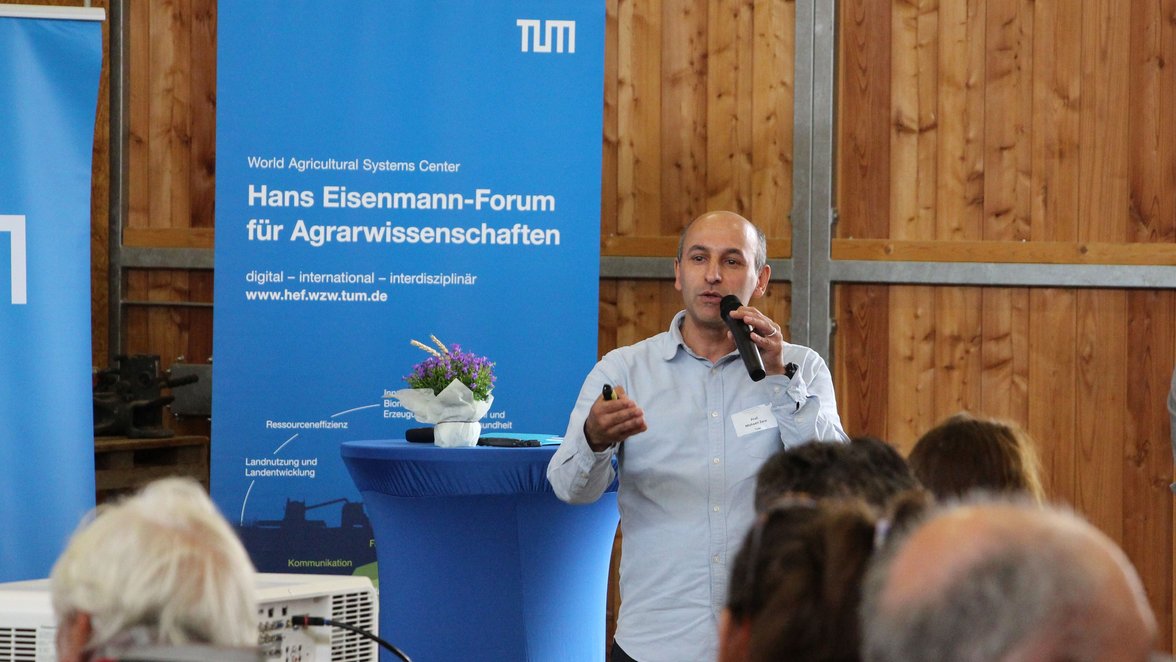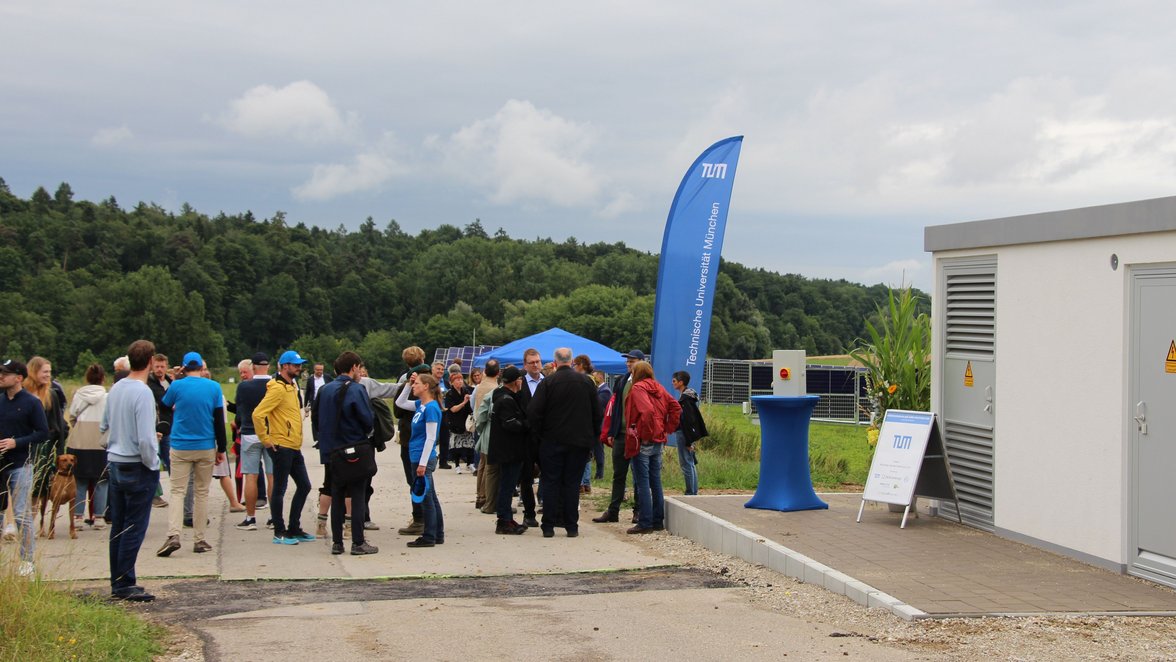TUM puts research facility for agri-photovoltaics into operation
Research, Campus, Climate Change, Event |
Agri-photovoltaics is considered one of the most promising renewable energy sources and is said to offer a number of advantages - also for farmers. Agri-photovoltaics offers farms the opportunity to become more economically and ecologically sustainable. The additional source of income and their own power supply make them less dependent on fluctuations in harvests or market conditions. By using renewable energy sources, they are making a further contribution to reducing greenhouse gas emissions.
“Agri-photovoltaics addresses two of the major issues facing our and future generations: food security and sustainable electricity supply,” said Prof. Ingrid Kögel-Knabner, Dean of the TUM School of Life Sciences and Professor of Soil Science, at the opening of the research facility on 24 July 2025, with over 120 guests in Dürnast, Freising.
Two types of systems for all-day power generation
Two different types of photovoltaic systems are installed in 14 rows on the research site: vertical and tracking modules. Vertical modules are stationary and oriented east/west, producing energy mainly in the morning and afternoon. The tracking systems are equipped with special trackers and move with the sun, enabling them to generate energy even during the midday hours. The two systems thus complement each other to produce energy throughout the day.
Interdisciplinary research
Interdisciplinary research
“At TUM, we have agricultural expertise in all areas: ecology, agricultural engineering, economics, and more,” says Prof. Senthold Asseng, Professor of Digital Agriculture and Scientific Director of the Hans Eisenmann Forum at TUM. “Here we can demonstrate this interdisciplinarity at the Agri-Photovoltaics research facility.”
At the opening, three TUM professors presented their research goals at the facility: Prof. Annette Menzel from the Chair of Ecoclimatology will investigate the microclimate beneath the panels. The effects of the panels on soil health will be investigated by the Chair of Soil Biophysics at Prof. Mohsen Zare. Prof. Heinz Bernhardt from the Chair of Agricultural Systems Engineering will examine the consequences for agricultural operations: How do the systems affect yields, what additional costs arise from maintenance, and how can the systems be combined with electric cars or tractors in operation?


